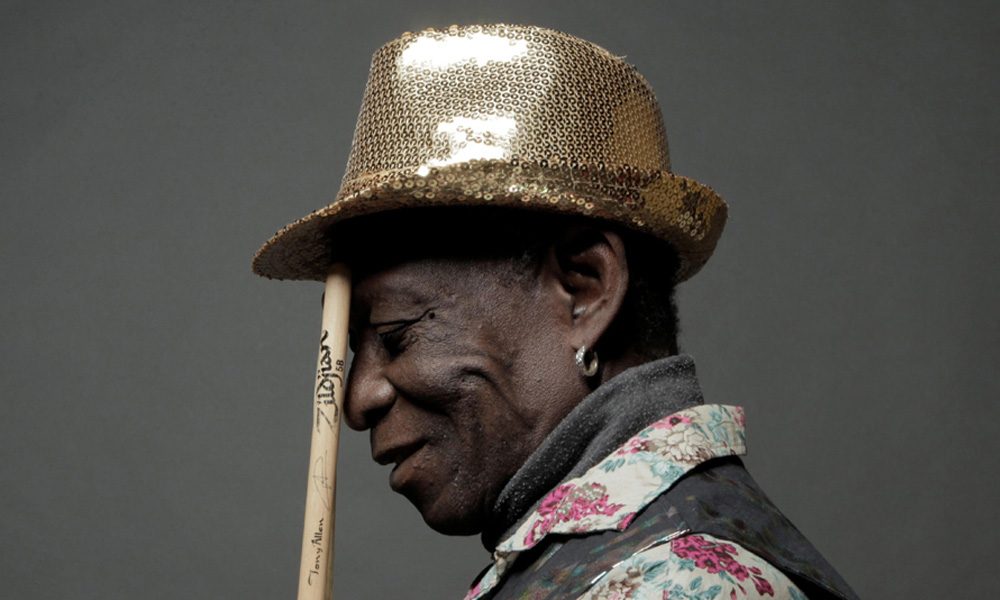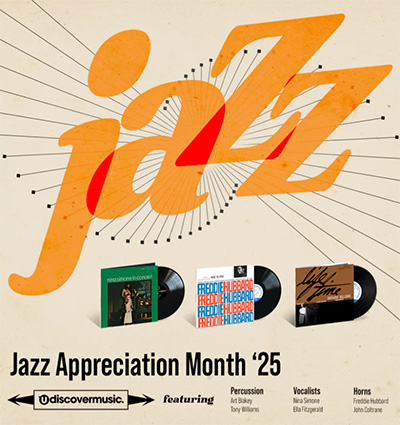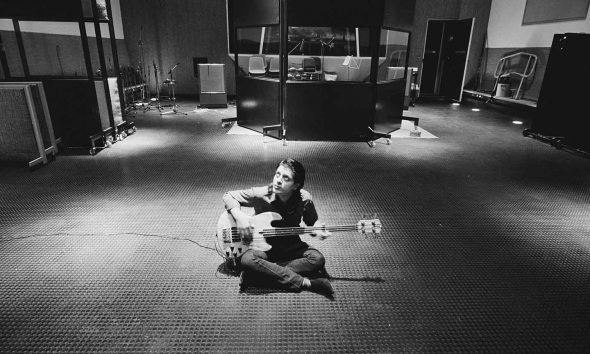Tony Allen, Pioneering Afrobeat Drummer, Dead At 79
Red Hot Chili Peppers bassist Flea described the late musician as “”one of the greatest drummers to ever walk this earth”

Pioneering Nigerian drummer Tony Allen, a co-founder of the afrobeat musical genre, died in Paris on Thursday aged 79, his manager has confirmed.
Eric Trosset told NPR radio that Allen had died of a heart attack, but stressed his death was not linked to coronavirus. “He was in great shape,” Trosset told The Guardian. “It was quite sudden. I spoke to him at 1pm then two hours later he was sick and taken to Pompidou hospital, where he died.”
Allen was the drummer and musical director of musician Fela Kuti’s famous band Africa ’70 in the 1960-70s. Fela, as he was widely known, died in 1997. He once said that “without Tony Allen, there would be no afrobeat”.
Afrobeat combines elements of West Africa’s fuji music and highlife styles with American funk and jazz.
Allen has also been described by UK musician Brian Eno as “perhaps the greatest drummer who has ever lived”. Allen’s career and life story were documented in his 2013 autobiography Tony Allen: Master Drummer of Afrobeat.
Tony Allen, who was born in the Nigerian capital, Lagos, in 1940, taught himself how to play drums when he was 18. He said he learnt his technique by listening closely to American jazz drummers Art Blakey and Max Roach.
In a 2002 interview in The Wire, Allen said of Art Blakey: “He was my idol. Superman. Art Blakey playing is not like one person playing. The way he treats jazz is to use African phrasing, his patterns. And when he’s riding on the cymbal, he’s serious — really something.”
Allen then created the distinctive polyphonic rhythms of afrobeat and was said to be able to play four different beats with each of his limbs.
“You don’t want to play too much, you don’t want to rock the boat”, he told The Wire, when discussing his singular style. “Make it clean, tight. A lot of drummers like to show off, crashing. It’s too easy. It’s not what I’m trying to say. Just make something very sensible — simple yet strong.”
Allen first met Fela Kuti in 1964, and they went on to record dozens of albums in Africa ’70, including Gentleman, Confusion and Zombie. Allen left the band in 1979, after reported rifts with the band leader over royalties. Fela needed four separate drummers to fill the void.
Allen subsequently emigrated to London in 1984, and later moved to Paris. He collaborated with a number of artists during his long music career, and was the drummer in The Good, the Bad & the Queen, with Damon Albarn, Paul Simonon and Simon Tong. He also released some highly regarded titles through the legendary Blue Note imprint during his latter years, such as 2017’s A Tribute To Art Blakey & The Jazz Messengers and The Source.
Eric Trosset led tributes in a Facebook post saying “your eyes saw what most couldn’t see… as you used to say: ‘There is no end'”.
Flea, the bassist for the Red Hot Chilli Peppers, who spent time with Allen in London, called him “one of the greatest drummers to ever walk this earth” and described him as his “hero”.
“What a wildman, with a massive, kind and free heart and the deepest one-of-a-kind groove,” Flea said on Instagram.
Beninois singer Angelique Kidjo told the BBC’s Newsday programme that she had been hit hard by both Allen’s death and the passing of Cameroonian saxophone legend Manu Dibango in March.
“What I want to remember from them is our musical conversation, our laughter, our joy. They are gone, but they are not gone for me,” she said. On Instagram, she said that Allen had “changed the history of African music”.
Ghanaian rapper M.anifest tweeted that Allen “put the beat in afrobeat” and thanked him “for a lifetime of being quietly epic”.
Listen to Tony Allen’s A Tribute To Art Blakey & The Jazz Messengers on Apple Music and Spotify.













Hudson Brown
May 5, 2020 at 1:51 pm
So sad to hear that…stay safe everyone!